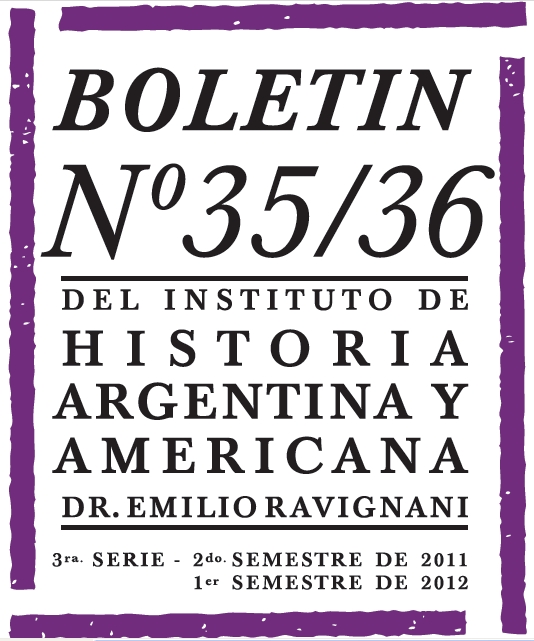Gremios teatrales y política municipal. Buenos Aires, 1926-1930
Abstract
In 1926 a group of artists and theatrical employees founded a political party defined as trade union, and entered the elections that were to take place in Buenos Aires that year. Results of the election surprised both people in and outside the party: People of Theater, that was the name of the party, got his first candidate, the well known actor Florencio Parravicini, elected as councilor. Although political performance wasn’t quite constant, the party of the artists kept its spot until 1930. This article will focus on these events to analyze the organization and participation of artists in the Buenos Aires political scenario. It will also discuss the relationship between trade associations and political parties, and between them and the city government. Also, this article points to a reflection about an actual problem in the political culture of the 1920s Buenos Aires: the meaning of “representation”, and his scope. Trade organization not only put to discussion the text of the law about party associations, but also fueled some traditions and opinions which said that it was required a trade representation arranged from sectorial interest groups.Downloads
The copyright is transferred to the Boletín, but the authors may retrieve them and reproduce their work in other media or formats by means of a written request to the Editorial Committee. In such cases, the Boletín will be cited as the first publication of the work.
The works are licensed under a Creative Commons Attribution-NonCommercial 4.0 International License, which allows others to share the work with an acknowledgment of their authorship and initial publication in this journal.
Also, by written request to the Editorial Committee of the Boletín, the authors may separately establish additional agreements for the non-exclusive distribution of the version of the work published in this journal (for example, placing it in an institutional repository or publishing it in a book), with an acknowledgement of its initial publication here. No commercial uses are allowed.



















